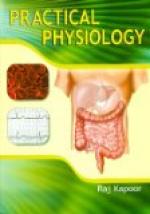Muscular strength provides the joints with more powerful ligaments and better developed bony parts. After long confinement to the bed from disease, the joints have wasted ligaments, thin cartilages, and the bones are of smaller proportions. Duly exercised muscles influence the size of the bones upon which they act. Thus the bones of a well-developed man are stronger, firmer, and larger than those of a feeble person.
He who has been physically well trained, has both a more complete and a more intelligent use of his muscles. He has acquired the art of causing his muscles to act in concert. Movements once difficult are now carried on with ease. The power of coordination is increased, so that a desired end is attained with the least amount of physical force and nervous energy. In learning to row, play baseball, ride the bicycle, or in any other exercises, the beginner makes his movements in a stiff and awkward manner. He will use and waste more muscular force in playing one game of ball, or in riding a mile on his wheel, than an expert would in doing ten times the work. He has not yet learned to balance one set of muscles against their antagonists.
[Illustration: Fig. 40.—The Standard Special Chest Weight.
A convenient machine by means of which all the muscles of the body may be easily and pleasantly exercised with sufficient variations in the movements to relieve it of monotony.
A space 6 ft wide, 6 ft deep, and 7 ft high nearly in front of the machine is required for exercise.]
In time, however, acts which were first done only with effort and by a conscious will, become automatic. The will ceases to concern itself. By what is called reflex action, memory is developed in the spinal cord and the muscular centers (sec. 273). There is thus a great saving of actual brain work, and one important cause of fatigue is removed.
83. Effect of Exercise on Important Organs. The importance of regular exercise is best understood by noting its effects upon the principal organs of the body. As the action of the heart is increased both in force and frequency during exercise, the flow of blood throughout the body is augmented. This results from the force of the muscular contractions which play their part in pressing the blood in the veins onward towards the heart. Exercise also induces a more vigorous respiration, and under increased breathing efforts the lung capacity is increased and the size of the chest is enlarged. The amount of air inspired and expired in a given time is much larger than if the body were at rest. The blood is thus supplied with a much larger amount of oxygen from the air inhaled, and gives off to the air a corresponding excess of carbon dioxid and water.




